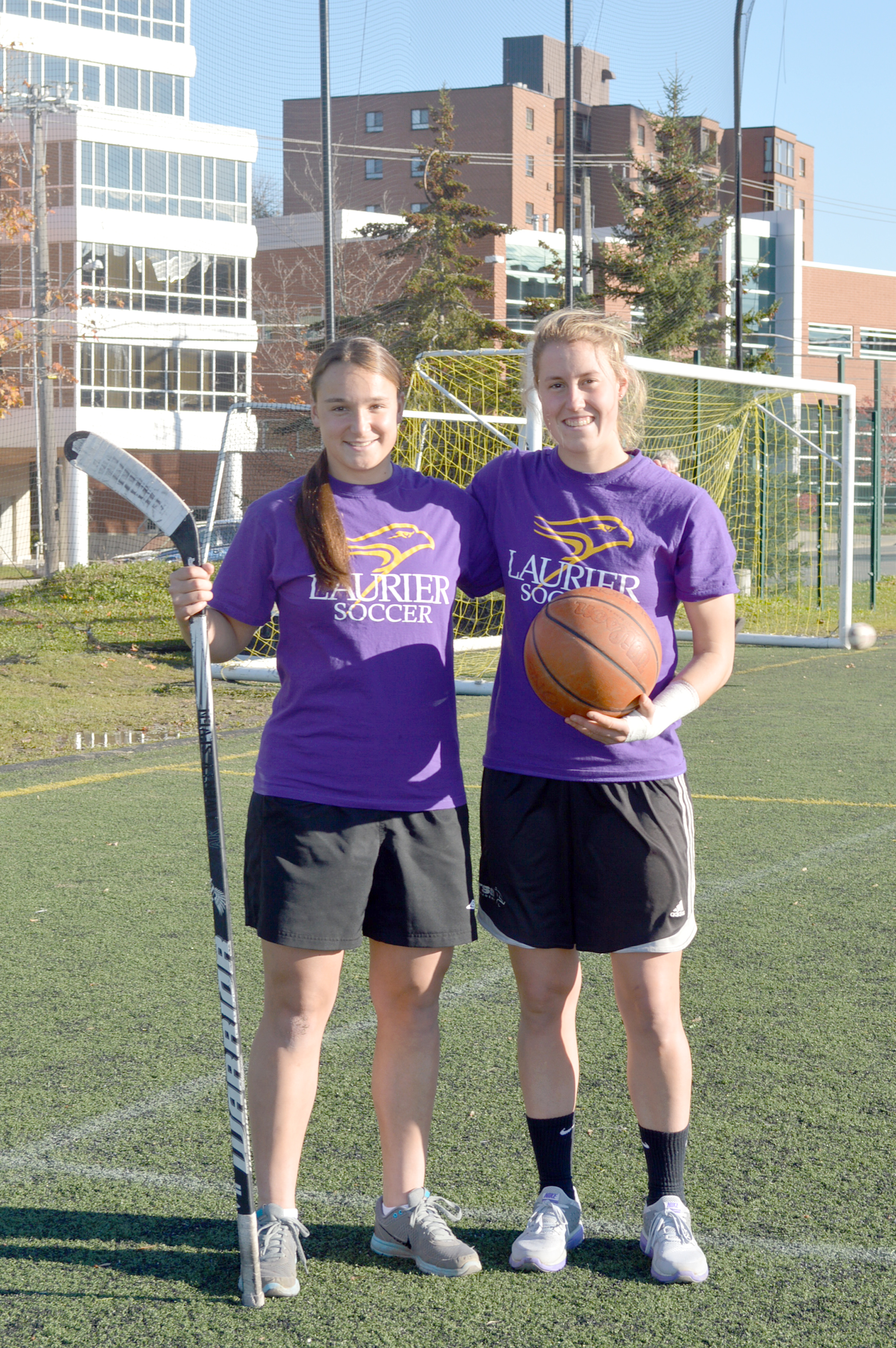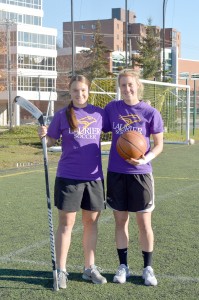When one sport is not enough


Being a varsity athlete in university is tough work. Firstly, it requires phenomenal skill in one area of athletics, a demanding fitness and academic schedule, and an immense time commitment.
Take all of these aspects, double them, and you have the lives of two exceptional varsity athletes here at Wilfrid Laurier University.
Katrina Ward is the fourth-year goalie on the varsity women’s soccer team, and plays on the women’s basketball team. Jacky Normandaeu is Ward’s teammate on the women’s soccer team, but plays on the women’s hockey team as well.
These dual-sport athletes have many things in common — the first being an early start. Both began playing each sport between the ages of five and seven.
They each fell in love with their respective sports early, and built their affection for them as they grew older.
Playing two sports at the varsity level requires a huge commitment to each, so it’s no surprise that neither of them were able to pick a favourite.
“[They’re] favourites for different reasons, I love the feeling of being outside and playing soccer with the girls and the team, and I love the involvement of playing basketball,” Ward said.
Normandeau had a very similar attitude, “I don’t think I could pick a favourite, I love certain things about each one,” she said.
Most would think the decision to play two varsity sports would be a difficult one to make, but both of these athletes are so passionate about their respective sports, that they both jumped at the opportunity.
“I just had to try it because that’s not something that happens every day, and it’s always been a dream to play at the highest level I could; I had to take the chance,” Normandeau said.
Ward didn’t even realize that playing two varsity sports at university could be done, but once she did, she too did not hesitate. Ward joined the women’s basketball team this season after three years as only a women’s soccer player.
“I’m in my fourth year. I’ve got nothing to lose, this is what I want to do and I’m willing to make the commitment and effort to make it work,” she said.
According to the athletes, making it work is not easy, but it is worth it. Ward stressed the importance of her teammates when she is struggling with staying on top of school work and athletics.
“On those days when I’m just tired and a bit burnt out, I get energy off of them, and it makes me realize that I love what I do,” she said.
While there are struggles involved in being a dual-sport athlete, there are several advantages, as there are several transferable skills that give these athletes a competitive advantage. They have additional experience in another sport that aids them even further.
Ward raised the point that the hand-eye coordination of being a goalie in soccer also helps her be effective on the basketball court.
Normandeau believes that hockey and soccer are definitely related.
“You need different kinds of strengths for each sport, [that] it kind of compliments both,” she said.
Both believe that playing two sports gives them strong fitness, as working in the offseason for one sport helps them in the regular season for the other. Basketball and soccer barely intersect, while hockey starts about a month after soccer does.
Another key transferable skill for both of them is the mental aspect of the game as that does not change between sports.
Neither Ward or Normandeau see themselves stopping their respective sports in the near future.
Their commitment, athletic ability and capacity to perform in two areas of athletics at a high level, is equally as inspirational as it is impressive, and should be recognized.


